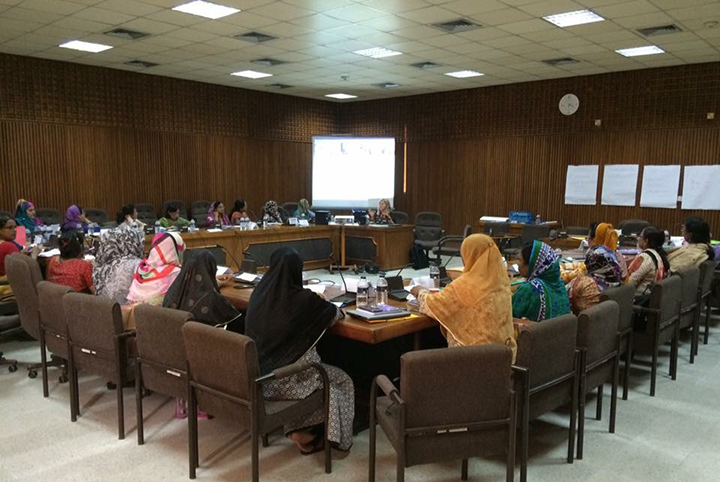
How does a midwife instructor go about finding evidence-based material for instructional purposes?
These are just some of the questions that came under discussion when a delegation from Dalarna University, after five months of online instruction, met their Dalarna University students in Dhaka, Bangladesh.
From September 5 to 9, Kerstin Erlandsson, Christina Pedersen and Ulrika Byrskog from Dalarna University were in Dhaka to attend the three-day oral examination and workshop with midwife instructors.
"Having the chance to discuss and reflect on difficult ethical dilemmas was a new educational experience for the students, and one they appreciated," explained Ulrika Byrskog.
Collaboration between Dalarna University and the United Nations Population Fund (UNFPA) has been ongoing since earlier this year. Its aim is to develop the profession of midwifery in Bangladesh. In April, an online master's programme started in which midwife instructors study half-time over two years.
The programme involves what is termed "blended learning", which means teaching both online and on site in Bangladesh. Attending the on-site meetings are students from 15 educational institutes in Bangladesh and teachers from Sweden. The meetings take place in Dhaka, where the online lessons are complemented with examinations, lectures and course introductions.
"This is the first online master's programme for midwives in Asia. The great thing with it is that students can remain at their own place of education at the same time as they are studying, and they can then directly implement their new-found knowledge and skills into their everyday practical work in various regions throughout Bangladesh," explains Kerstin Erlandsson.
"Dalarna University provides technical support, live and recorded lectures, NGL and library resources. We have online seminars with the students in real time so that students can be given assignments to support clinical supervision of midwifery students using evidence-based knowledge and theory at their respective institute of education and in clinics. In this way, their critical thinking is also able to develop as are the way they search for knowledge and they can develop new ways to vary their own instruction," continues Kerstin.
In Bangladesh, where maternal mortality sits at about 170 per 100 000, the midwifery profession is new and in the developmental phase. There are about 1000 midwives for a population of over 160 million. The majority of women give birth at home without having access to professional health care. Geographical conditions, the power structure within the family and a lack of health-care services and educated staff are barriers towards women's sexual and reproductive health and rights.
UNFPA is a UN agency that supports the development of the midwife profession. Its aim is to deliver "a world where every pregnancy is wanted, every child born is safe and every young person's potential is fulfilled."
About UNFPA: United Nations Population Fund